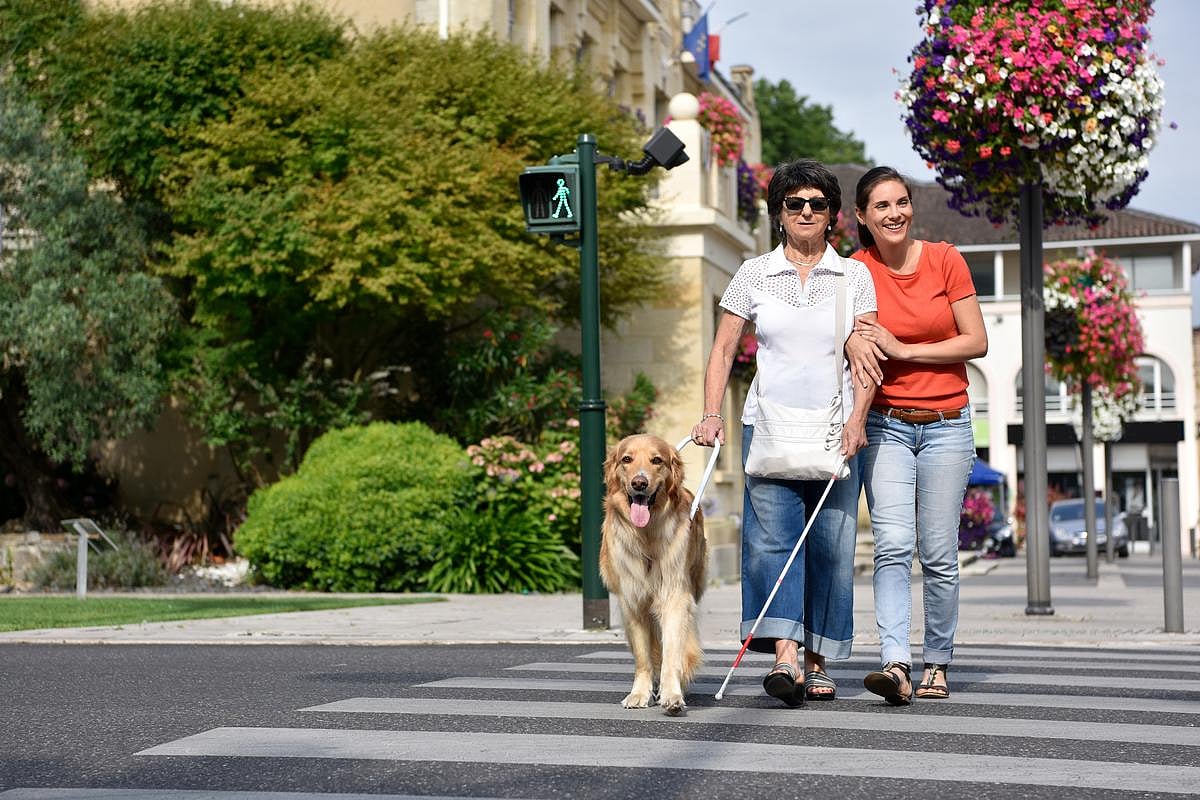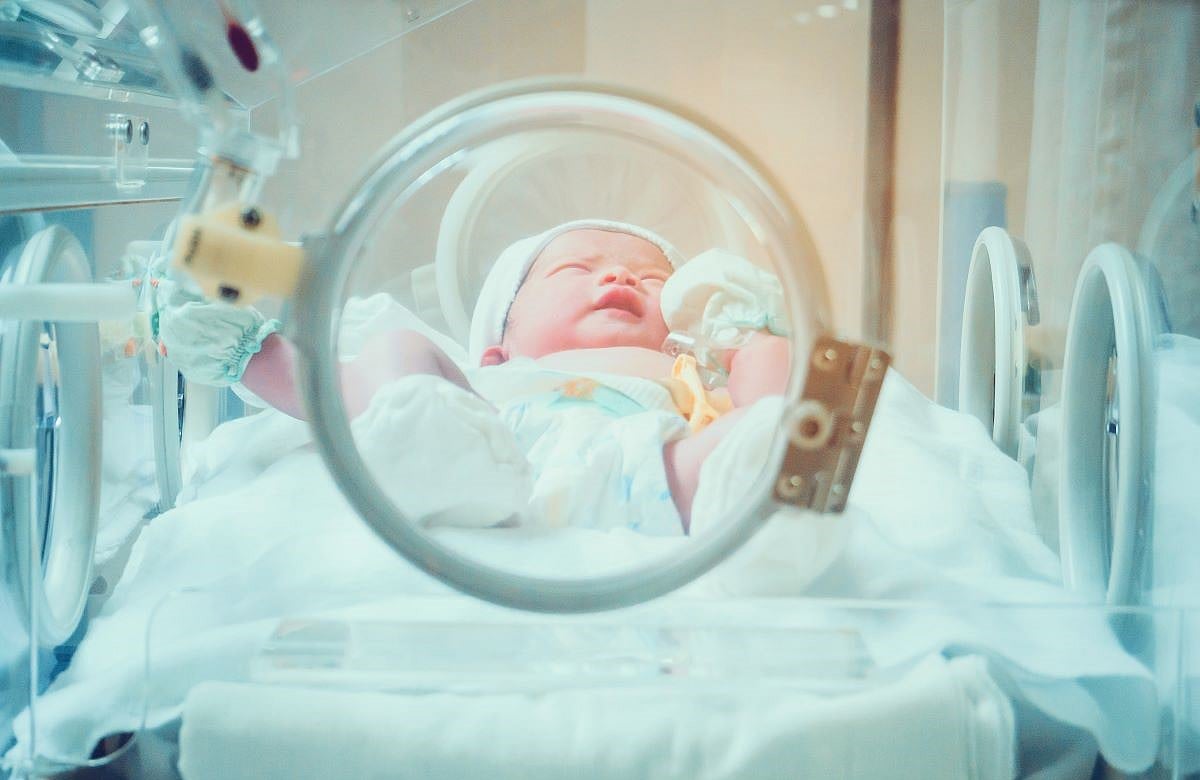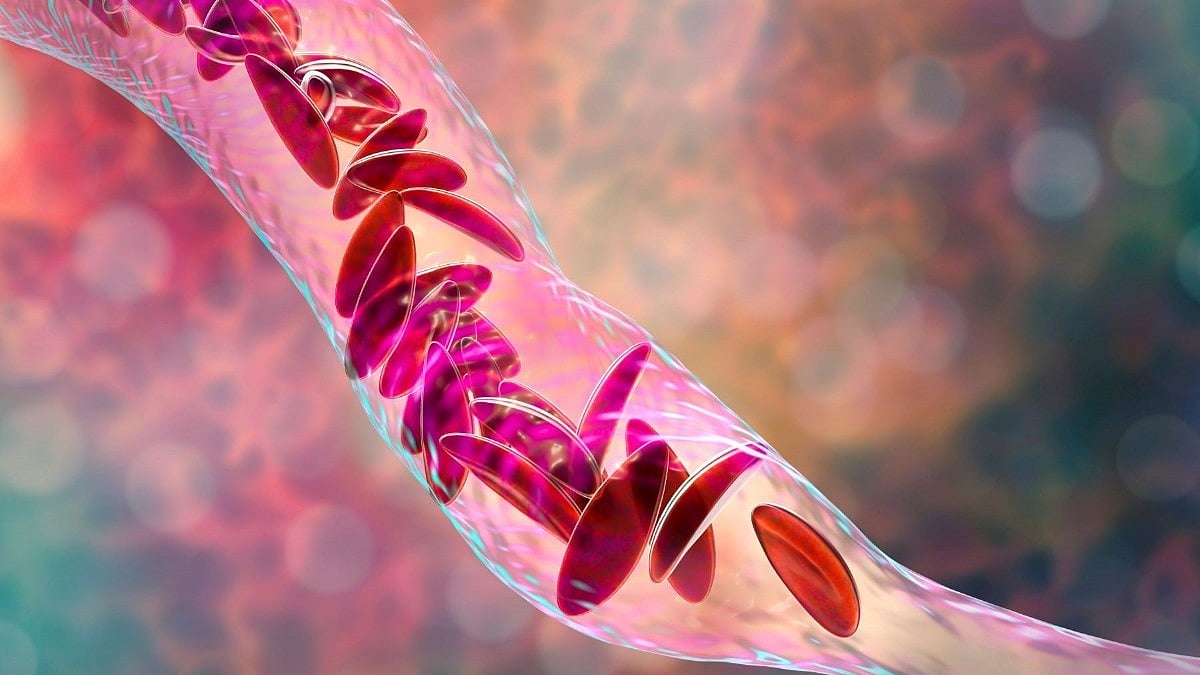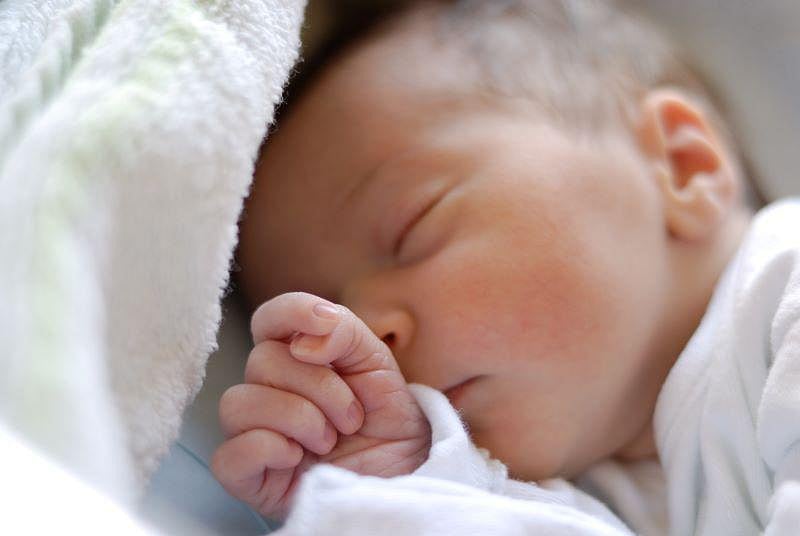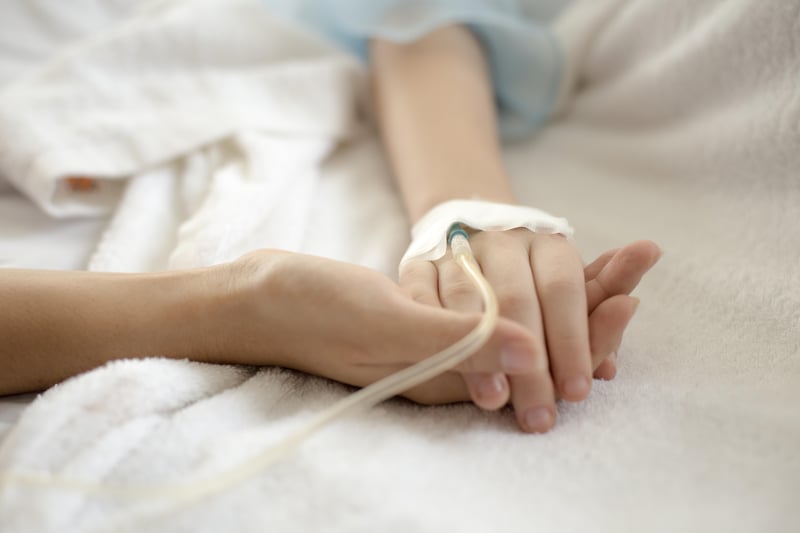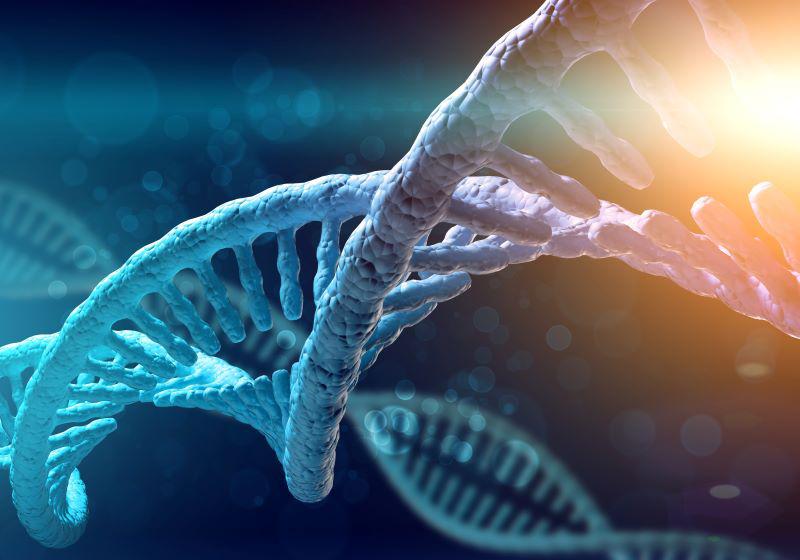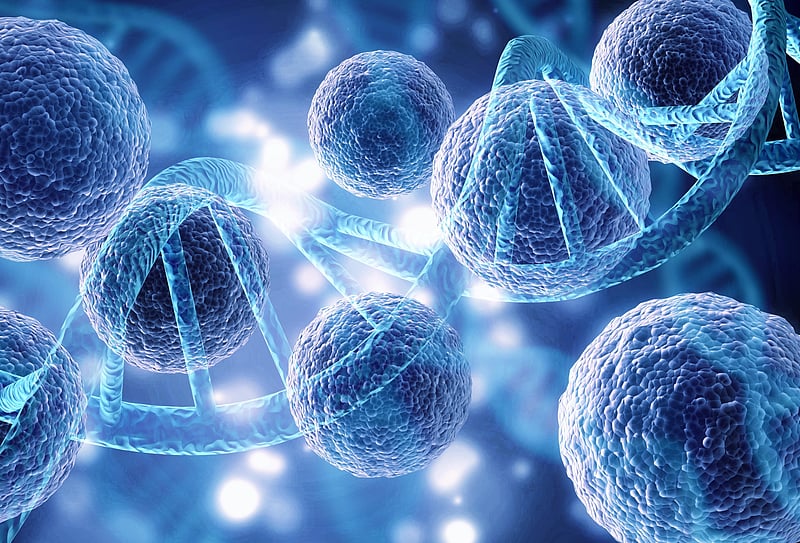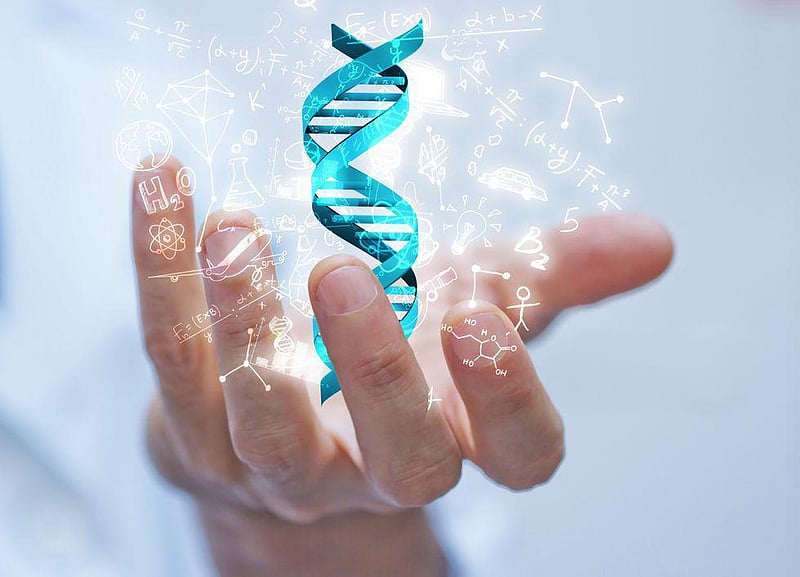Drug Center mobile app.

Quickly request refills or login and manage your prescriptions on the go!
Available on both iTunes and Google Play.
Get Healthy!
Results for search "Genetic Disorders".
Health News Results - 33
Genetics aren’t necessarily destiny for those with mutations thought to always cause inherited blindness, a new study says.
Fewer than 30% of people with these genetic variants wind up blind, even though the faulty genes had been thought to cause blindness in 100% of those with them, according to findings published Dec. 22 in the
Most folks with genetics that put them at risk for high cholesterol and early heart disease aren’t aware of their danger, a new study says.
Nearly 90% of people carrying genetics that cause dangerously high cholesterol — an inherited condition called familial hypercholesterolemia — were not aware of their risk, researchers recently reported in journal
A new Guinness World Record for fastest whole human genome sequencing has been achieved, with researchers breaking down a patient’s genetic profile in less than four hours.
The 3-hour 57-minute analysis surpassed the previous record of 5 hours and 2 minutes, researchers reported Oct. 15 in The
Cystic fibrosis (CF) is a rare autosomal recessive disorder that affects numerous systems of the body. It is a complicated disease that differs from person to person.
An autosomal recessive disorder is a genetic condition in which an affected person has inherited a mutated gene from each parent.
In CF, mutations in the CF transmembrane conductance regulator (CFTR) gene can cau...
- HealthDay Reporter
- Dr. Sandy Sufian, historian of medicine and disability at University of Illinois at Chicago
- |
- June 24, 2025
- |
- Full Page
Women with sickle cell disease often have pain crises around the time of their period, and researchers now think they know why.
Inflammation increases significantly in women during their period, and that could be contributing to sickle cell pain events, researchers reported.
“The amount of inflammation is significantly elevated in the follicular phase, or first half, of the me...
- HealthDay Reporter
- Dennis Thompson
- |
- April 14, 2025
- |
- Full Page
THURSDAY, April 10, 2025 (HealthDay News) -- Having a father with Alzheimer’s disease could put you at risk for brain changes linked to the degenerative disorder, a new study says.
People whose fathers fell prey to Alzheimer’s had a greater spread of tau proteins in their brain, according to findings published in the journal
Rare gene-driven defects such as Down syndrome have occurred among human beings for many thousands of years, a new analysis of ancient DNA has revealed.
Not only did the birth defects exist, but these infants were often buried with care by their community. That suggests they were included as part of the community despite their differences, researchers said.
Six cases of Down syndrom...
- HealthDay Reporter
- Dennis Thompson
- |
- February 21, 2024
- |
- Full Page
Bats have an extraordinary ability to avoid cancer and handle infections, and researchers now think they might know why.
Specific genetic adaptations caused by rapid evolution have made bats extremely cancer-resistant, researchers report in the Sept. 20 issue of the journal Genome Biology and ...
- HealthDay Reporter
- Dennis Thompson
- |
- September 20, 2023
- |
- Full Page
Identifying genetic disorders in newborns and infants can help them get the care they need, but one approach -- whole genome sequencing -- appears far superior to another.
In a new study, researchers compared whole genome sequencing with targeted gene-sequencing. They found that whole genome sequencing (WGS) was nearly twice as effective at finding the abnormalities that lead to diso...
- HealthDay Reporter
- Cara Murez
- |
- July 11, 2023
- |
- Full Page
The so-called "Viking disease"causes the fingers of many aging northern European men to lock up in a bent position, and researchers now think they know why.
Genetic variants inherited from Neanderthal man appear to be the most powerful risk factors for developing Dupuytren's contracture -- called the Viking disease because it mainly affects men descended from northern Europeans.
Up ...
- HealthDay Reporter
- Dennis Thompson
- |
- June 14, 2023
- |
- Full Page
People with the rare heart disorder hypertrophic cardiomyopathy (HCM) can safely engage in vigorous exercise, according to new research.
This finding could lead to fewer activity restrictions for people with this condition, which involves the heart muscle becoming thickened and enlarged.
HCM is an inherited disorder that affects about one in 500 people worldwide. It is associat...
- HealthDay Reporter
- Cara Murez
- |
- May 19, 2023
- |
- Full Page
While newborns are only screened for about 60 treatable conditions, there are hundreds of genetic disorders that have targeted treatments.
Now, a national survey of experts in rare diseases found the vast majority support DNA sequencing in healthy newborns.
Testing, surveillance and treatment options exist for over 600 genetic conditions. This includes a growing number of devastat...
- HealthDay Reporter
- Cara Murez
- |
- May 9, 2023
- |
- Full Page
Scientists say their new study has overturned settled science, finding a new cause for a metabolic disease that causes neurological damage and sometimes death in Native American children.
The good news is that this may lead to better treatment for the condition.
While people with the inherited condition Glutaric Aciduria Type I (GA-1) had been believed to be affected by toxic subs...
- HealthDay Reporter
- Cara Murez
- |
- April 20, 2023
- |
- Full Page
It sounds like the stuff of a vampire novel, but for people with a group of rare genetic disorders, exposure to sunlight can cause excruciating pain.
Now, an experimental medication is showing promise for helping them better tolerate the light of day.
In an early clinical trial, researchers tested the drug for patients with either of two related conditions: erythropoietic protoporp...
- HealthDay Reporter
- Amy Norton
- |
- April 13, 2023
- |
- Full Page
When Yoni Silverman, now 13, was a toddler, his parents fretted as he missed milestone after milestone. The New York City couple took their son to a host of specialists, searching for answers about why he wasn't speaking and had difficulty with balance, among other developmental issues.
Fast forward a few years later, and a Boston couple was going through something similar with their now ...
- HealthDay Reporter
- Denise Mann
- |
- March 16, 2023
- |
- Full Page
New research offers hope to elite athletes who have genetic heart conditions but still want to play sports.
In the new study, after a follow-up of seven years, researchers found that 95% of athletes with a diagnosed and treated genetic heart disease had no disease-triggered cardiac events. These would have included fainting or seizures, implantable cardio-defibrillator (ICD) shocks, sudde...
- HealthDay Reporter
- Cara Murez
- |
- March 7, 2023
- |
- Full Page
Patients with an incurable, genetic liver disease have new hope after an animal study showed that a single drug could reverse its effects.
Alagille syndrome is caused by a mutation that prevents the formation and regeneration of bile ducts in the liver.
About 4,000 babies a year are born with this condition. Often, they require a liver transplant, which is not always available. With...
- HealthDay Reporter
- Cara Murez
- |
- January 6, 2023
- |
- Full Page
Doctors are hopeful that an innovative treatment performed before birth may help children born with the rare genetic, and often fatal, condition called Pompe disease.
A thriving Canadian toddler is evidence that treatment while still in the womb offers better outcomes.
Doctors from the United States and Canada published a case study Nov. 9 in the
People with a rare genetic form of ALS may benefit from extended use of an investigational drug, a new study shows.
The medication, tofersen, benefited patients with mutations of the gene SOD1. These mutations create a misfolded version of a protein, which leads to amyotrophic lateral sclerosis, also kn...
- HealthDay Reporter
- Cara Murez
- |
- September 23, 2022
- |
- Full Page
More than 70 genes are very strongly associated with autism and more than 250 are linked to the condition, a major new genetic analysis has revealed.
The analysis is the largest of its kind to date, involving more than 150,000 participants, including 20,000 diagnosed with autism.
The researchers found t...
- HealthDay Reporter
- Dennis Thompson
- |
- August 19, 2022
- |
- Full Page
Scientists have developed a single test that can rapidly detect a collection of rare genetic diseases -- an advance they hope will shorten the "diagnostic odyssey" that people with these conditions can face.
The test diagnoses conditions known collectively as "STR-expansion" disorders, which include more than 50 genetic diseases that affect the brain, nervous system and muscles.
Som...
- HealthDay Reporter
- |
- March 10, 2022
- |
- Full Page
An experimental drug may help build bone mass in some adults with a rare brittle-bone disease, a small preliminary study suggests.
The disease is called osteogenesis imperfecta. It's caused by defects in certain genes involved in making collagen -- a key protein in the body's connective tissue. O...
- HealthDay Reporter
- |
- February 21, 2022
- |
- Full Page
Most gene variants that have been labeled "pathogenic" may make only a small difference in a person's risk of actually developing disease, a new study suggests.
- HealthDay Reporter
- Amy Norton
- |
- January 27, 2022
- |
- Full Page
Every year in the United States, a few hundred children die suddenly and without explanation. Now researchers have found gene variants that may contribute to some of those tragic deaths.
The hope, experts said, is that understanding the underlying mechanisms will eventually lead to ways to save lives.
Since the 1990s, the term
French Bulldogs are incredibly cute, sporting adorable snub snouts, big round heads, bright wide eyes and large bat ears.
Unfortunately, the physical traits that make them one of the most popular breeds in the United States and United Kingdom also saddle them with a host of health problems, a new study shows.
Frenchies have significantly higher odds than other dog breeds of being di...
- HealthDay Reporter
- Dennis Thompson
- |
- December 20, 2021
- |
- Full Page
A gene therapy that could provide a permanent cure for sickle cell disease continues to show success through a third wave of patients, researchers report.
The therapy, LentiGlobin, restored normal blood function in 35 sickle cell patients who had the one-time procedure, according to clinical trial findings published Dec. 12 in the
Children at risk for multiple sclerosis (MS) might find some protection from the disease by spending more time in the sun, a small study suggests.
Although MS is rare in children and young adults, those with relatives who have the condition have increased odds of developing the disease early. Exposure to sunlight may cut their risk in half, researchers say.
"In families where there'...
- HealthDay Reporter
- Steven Reinberg
- |
- December 9, 2021
- |
- Full Page
Gene therapy might soon offer a new option for children with a rare genetic disorder that damages tissues throughout the body, researchers are reporting.
In a study of eight children with the condition, called Hurler syndrome, researchers found that the gene therapy was safe over two years. It also showed potential for beating the current standard treatment, stem cell transplantation.
...- HealthDay Reporter
- Amy Norton
- |
- November 18, 2021
- |
- Full Page
Whole genome sequencing of blood samples improves detection of rare genetic conditions called mitochondrial disorders, British researchers report.
These disorders are inherited and affect about 1 in 4,300 people, causing progressive, incurable diseases.
Though they are among the most common inherited disorders, mitochondrial disorders are tough to diagnose because they can affect ma...
- HealthDay Reporter
- Robert Preidt
- |
- November 8, 2021
- |
- Full Page
In his work with patients who have pancreatic cancer, Dr. Srinivas Gaddam was bothered by something that he was seeing.
"There are some patients that you can't stop thinking about because they've left a mark on you and you try your best to turn things around, but there's only so much you can do," said Gaddam, who said he had found himself caring for a few patients who were very young.
- HealthDay Reporter
- Cara Murez
- |
- October 25, 2021
- |
- Full Page
Nine of 10 patients with so-called "bubble boy" immune disease who received gene therapy about a decade ago are still disease-free, researchers report.
The gene therapy was developed at the University of California, Los Angeles (UCLA), to treat the rare and deadly immune system disorder formally known as adenosine deaminase--deficient severe combined immunodeficiency (ADA-SCID).
It'...
- HealthDay Reporter
- Robert Preidt
- |
- October 21, 2021
- |
- Full Page
Most parents want their children to live carefree lives, so a diagnosis of childhood cancer is devastating. Fortunately, pediatric cancers are rare.
Yet it doesn't hurt to be watchful for the warning signs, suggest experts in childhood cancer from Penn State Health.
The best screening most parents can do is to stay on track with well-child visits, the doctors said.
"For e...
- HealthDay Reporter
- |
- September 11, 2021
- |
- Full Page
Danish researchers have found genetic causes for epilepsy in half of children they studied and said half of those could be treated with targeted therapies.
That's the upshot of genetic testing of 290 children born between 2006 and 2011. Some had been diagnosed with epilepsy. Others had had seizures along with a high temperature; they were either long seizures or consciousness was not rega...
- HealthDay Reporter
- |
- September 6, 2021
- |
- Full Page
